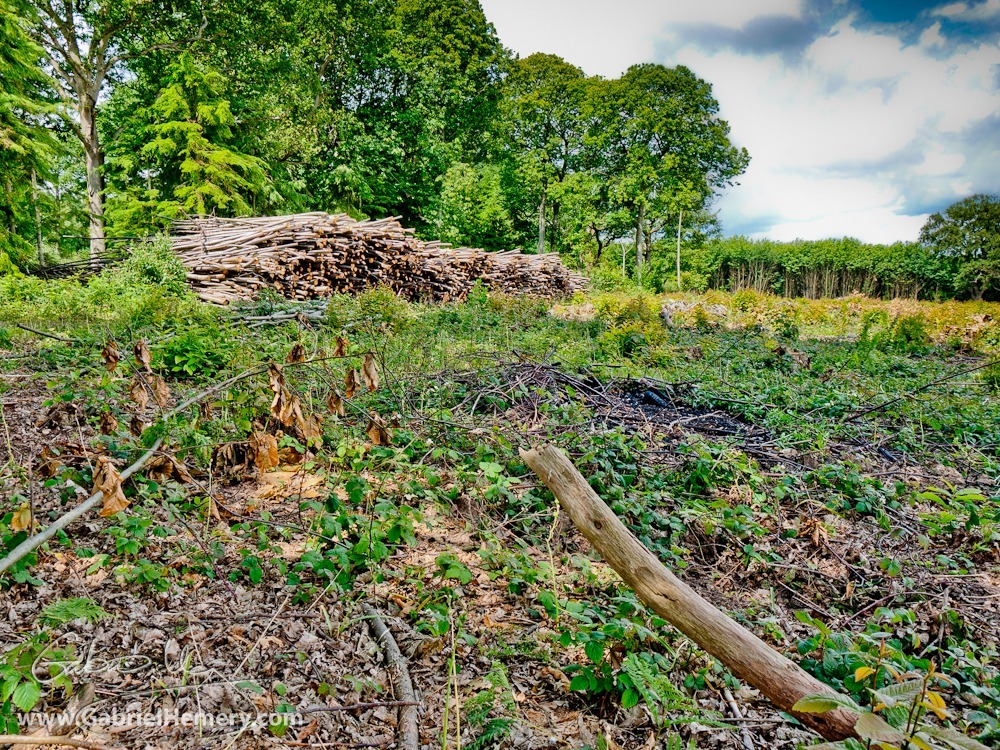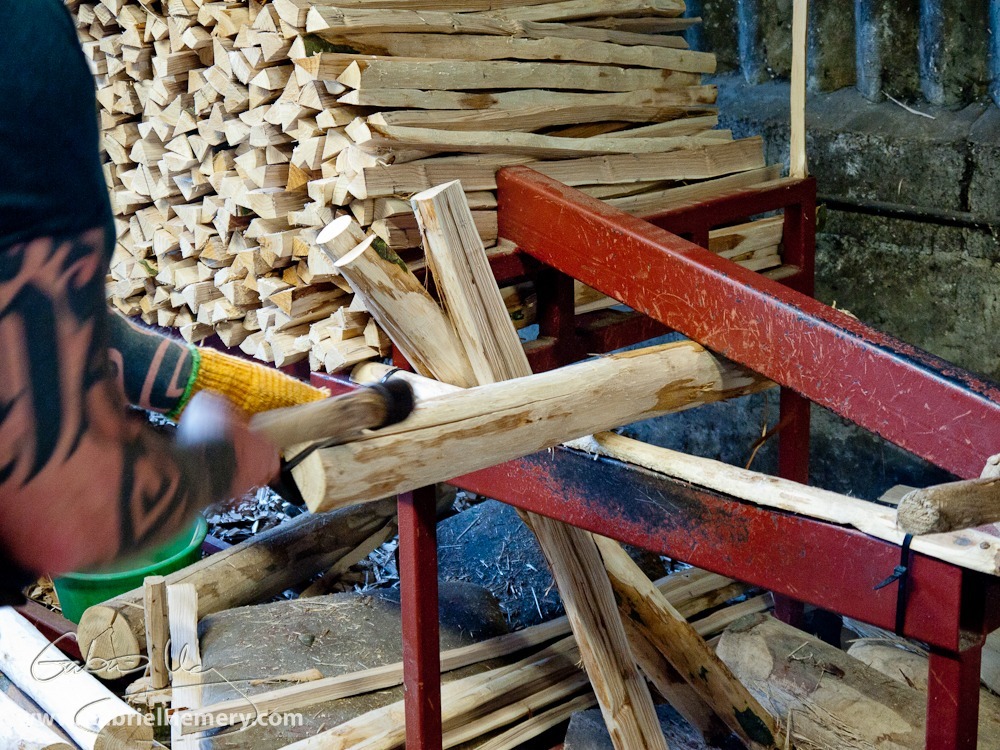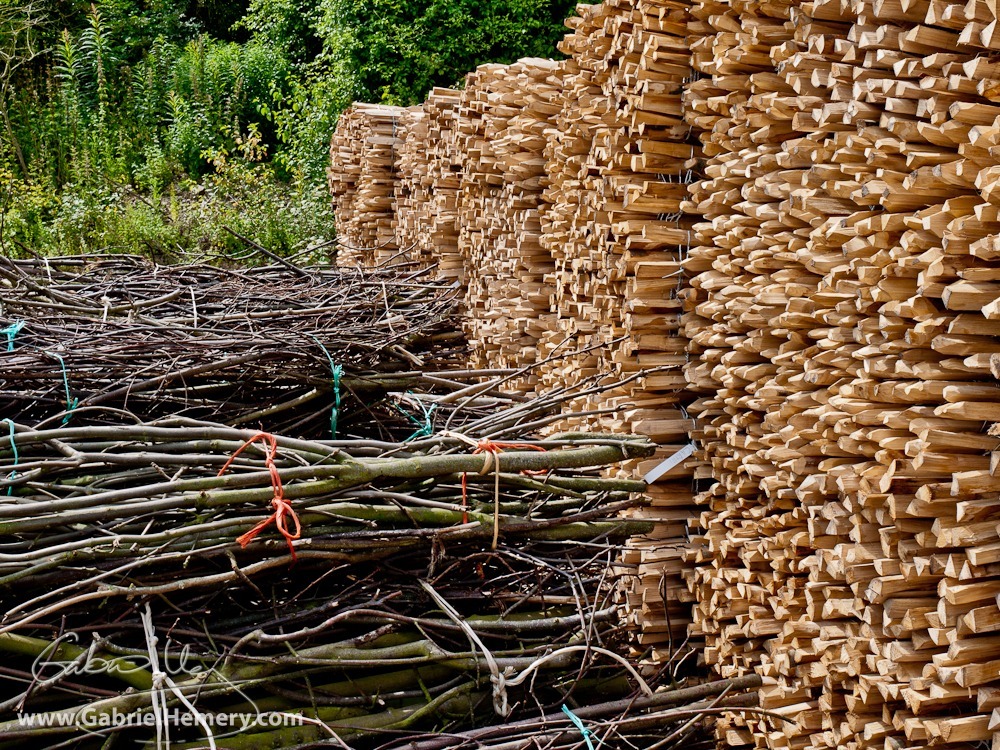
This week I had the pleasure of visiting Kent – “England’s garden” – famous for its apple, cherry and cobnut growing. It is also the centre of Britain’s sweet chestnut coppice industry.
Sweet chestnut (Castanea sativa) was introduced to Britain by the Romans some 2000 years ago. Its attraction was the nutrious nuts produced every Autumn within the hedgehog-like prickly shells or cupules. Sweet chestnut also produces some of the most durable of timbers, which is resistant to rot and very strong. Its cleaves, or splits easily along the grain, which makes it a perfect wood for making pegs, stakes, or fencing. The unrelated horse chestnut (Aesculus hippocastum) has nuts that are inedible and a wood which is virtually unusable, even for burning.

Historical records from Canterbury Cathedral show that there were large areas of coppice grown in Kent by 1200. The chestnut coppice industry expanded rapidly during the 19th Century to meet a growing demand for hop poles from the brewing industry.
Sweet chestnut coppice is grown on a 30 year cycle. It is managed in felling coupes or ‘cants’ that are usually sold ‘standing’ (i.e. uncut) to coppice workers, whose experienced eyes allow them to quickly assess how many poles and stakes they can produce from a cut.
I visited Torry Hill Farm, run as a family business by John Leigh Pemberton. The Pembertons have revived and transformed the industry in growing quality chestnut using efficient silviculture, backed by smart business know-how. They provide FSC-certified chestnut products, ranging from pegs, cleft stakes, wired fencing, fencing stakes and rails, supplying wholesale across Britain and now exporting to France, Germany and even the USA.

Cleaving chestnut is a skilled job and Torry Hill Farm now employ some 15 workers in their Kent factory. The stakes and rails are split or cleaved by hand using a froe. The skill is in selecting the wood and being able to ‘read’ it, almost without thinking, knowing how to best produce the greatest number of quality stakes from a pole.

Torry Hill Farm produce carbon lean, natural and sustainable products that are growing in their popularity. The wired chestnut fencing familiar on construction sites is now widely used for dune restoration projects and in zoos, while a 6′ (1.8m) high variant is becoming popular for deer fencing. The small amount of waste is used to produce heat in the factory, and there is even a growing market for the brash (branch tops) which are bundled into ‘faggots’ and used to repair river banks.
I was inspired by the visit, particularly in how the combination of innovation, hard work, top quality silviculture and business know-how has built a profitable international business that was not dependent on Government hand-outs for woodland management. If only other silvicultural regimes could be so productive.
Gabriel Hemery
 This work is licensed under a Creative Commons Attribution- NonCommercial- NoDerivs 3.0 United States License.
This work is licensed under a Creative Commons Attribution- NonCommercial- NoDerivs 3.0 United States License.

That’s a little bit harsh on poor old Conker. It’s quite decent for a non durable timber, stable, lightweight and rather attractive.
Thanks for your comment. Have you anything you’ve made from horse chestnut you could show me? I’d love to be proved wrong.
ive worked for 30yrs coppicing pale making everything to do with woods im looking for a job but its hard where to find this sort of work i just wondered if you had anything kind regards BR ALLEN
Hello Brian and thank you for your enquiry.
You may want to take a look at the myForest service which provides a free platform for businesses to offer their services. You can also explore other businesses that work in the coppice industry, as these may be hiring.
I hope that this may provide some leads. Good luck!